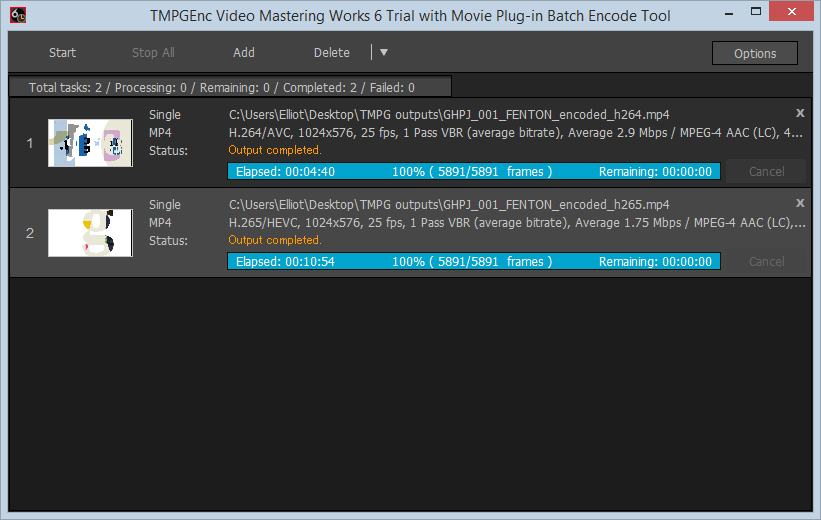By associate editor Elliot Smith:
H264 video compression is ubiquitous, well-supported and really really old – the standard was agreed in 2003, which means although it’s a workhorse codec for nearly all online video content, technological advances in the intervening years mean it’s now looking a bit underpowered.
And with greater-than-HD resolutions gradually gaining popularity for acquisition and finishing, h265 is likely to be the format of choice for the next ten years of video transmission on the web.
It’s early days: there aren’t many devices or software packages that can play h265 content yet, but it’s a very appealing as a format, especially if you’re working in 4K. This is because it aims to be twice as efficient at encoding as h264 – it’s also known as HEVC or High Efficiency Video Codec.

And if you want to try it for yourself now you can: the latest version of TMPGEnc’s Video Mastering Works offers HEVC encoding, a reasonable purchase price of $122 and a free trial download.

In my own completely unscientific test, encoding the same master video to h264 and h265 resulted in a filesize of 82.2MB for h264 and 47.7MB for h265 – and viewed back using VLC there didn’t appear to be any obvious differences between the two files. In fact I’m not sure it would be possible to tell which was which if you didn’t already know.

The downside? All that extra number crunching takes its toll on the speed of the encoding process: the h264 file was finished in 4m40s but the h265 file took 10m54s. Not such great news if like me you’re using older hardware (an Intel Core 2 Quad that originally launched in 2008) – but the software makes use of all available CPU cores so if you have a more modern i7 chip with hyperthreading you’ll see an improvement on those times. Video Mastering Works was certainly making use of all the horsepower my ageing PC was able to throw at it.
It is possible to use an Nvidia GPU to take some of the encoding load, but disappointingly the software uses CUDA to achieve this rather than the newer NVENC protocol – personally I’ve never found the increase in speed enough to justify the loss of quality from CUDA encodes. So it could be time to invest in that six-core ‘enthusiast’ PC you’ve been promising yourself…
So all in all Video Mastering Works is well worth a download, if only to see how your computer performs with HEVC / h265 content – although the package as a whole seems like a flexible, reasonably intuitive and very tweakable encoder. If you’re Windows-based it could be a handy addition to your editing and file conversion workflow.





